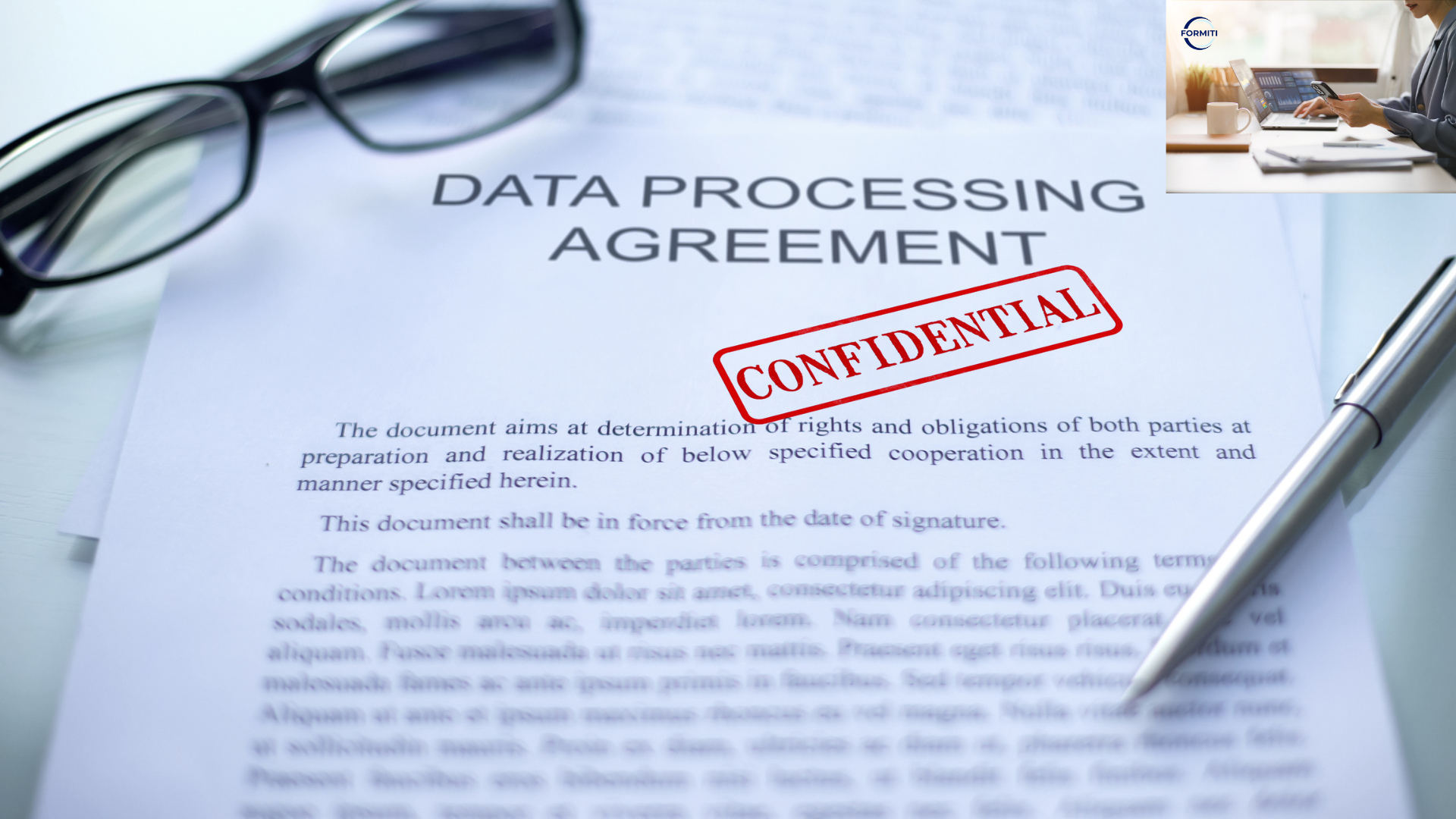AI & Data Processing Agreements: Why AI Clauses Are Now Essential
Artificial intelligence (AI) is changing the game when it comes to how businesses handle personal data. Whether it’s automated decision-making, predictive analytics, or AI-driven personalization, businesses are increasingly turning to AI for processing sensitive data. However, many Data Processing Agreements (DPAs) fall short by lacking AI-specific clauses, leaving organizations vulnerable to compliance risks, liability issues, and regulatory penalties.
In the UAE, Saudi Arabia, Qatar, and across the Middle East, where privacy laws are stringent, it’s imperative that all Controller-to-Processor and Processor-to-Sub-Processor agreements explicitly address AI-related processing. Without these clauses, companies face the risks of non-compliance, lack of accountability, and potential legal disputes arising from AI decisions.
Why AI Clauses Are Essential in Data Processing Agreements (DPAs)
AI brings along unique risks that traditional DPAs do not cover. These risks include:
✅ Bias & Discrimination – AI systems may inadvertently discriminate against certain groups. DPAs should mandate fairness testing and measures to address bias.
✅ Automated Decision-Making & Profiling – AI-driven decisions have a direct impact on individuals. DPAs need to outline how data subjects’ rights to object, access, or challenge AI decisions are handled.
✅ Transparency & Explainability – The decision-making process of AI must be transparent to regulators and data subjects. DPAs should require documentation of AI logic and sources of training data.
✅ Liability & Accountability – Who takes responsibility for errors or data breaches related to AI? DPAs should clearly define liability and penalties for non-compliance.
✅ Compliance with Privacy Laws – AI processing must adhere to laws such as UAE PDPL, Saudi PDPL, and Qatar PDPPL. DPAs should compel processors and sub-processors to meet AI-specific legal requirements.
6-Step Plan for Redlining AI Processing Agreements
When dealing with DPAs involving AI, follow this six-step redlining plan to ensure compliance and risk management.
1️⃣ Define AI Processing Clearly
Make sure the contract clearly defines AI processing activities. Avoid vague terms like “data analytics” or “automated systems.” Instead, specify:
- Types of AI models used (e.g., machine learning, neural networks).
- Processing of personal data (e.g., profiling, automated decision-making).
- Purpose of AI-driven data processing (e.g., fraud detection, credit scoring).
🚨 Red flag: If AI is involved but not explicitly mentioned, insist on a clear definition.
2️⃣ Specify AI Compliance & Regulatory Obligations
Ensure the agreement mandates compliance with AI-related data privacy laws in the Middle East. The contract should require the processor to:
- Conduct AI-specific DPIAs (Data Protection Impact Assessments).
- Adhere to fairness, transparency, and accountability principles.
- Enable data subject rights related to AI-driven processing.
🚨 Red flag: If there’s no mention of DPIAs or AI governance, the contract is non-compliant.
3️⃣ Address AI Training Data & Bias Mitigation
The contract should require the processor to:
- Document the source of AI training data.
- Ensure datasets are diverse to prevent bias.
- Implement bias testing and reporting mechanisms.
🚨 Red flag: If AI models use unverified or untested training data, your company may be liable for discriminatory outcomes.
4️⃣ Clarify AI-Related Liability & Indemnification
AI processing introduces new liability risks, including false AI-driven decisions, reputational damage, and regulatory penalties. The contract must:
- Clearly assign liability for AI errors (e.g., incorrect risk assessments, biased hiring algorithms).
- Include indemnification clauses for AI-related data breaches or regulatory violations.
- Specify financial penalties for AI non-compliance.
🚨 Red flag: If liability is vague or entirely shifted to the controller, the processor avoids responsibility for AI failures.
5️⃣ Require AI Audits & Continuous Monitoring
The agreement should mandate:
- Regular AI audits to detect bias, fairness issues, and compliance gaps.
- Ongoing monitoring of AI models to prevent drift and inaccuracies.
- Access to AI audit reports for controllers and regulators.
🚨 Red flag: If AI auditing is not required, you have no way to verify compliance.
6️⃣ Ensure Data Subject Rights & AI Explainability
The agreement must ensure that AI-driven decisions respect user rights, including:
- Right to explanation – Users must understand how AI affects them.
- Right to object – Individuals can reject automated processing.
- Right to access – AI-generated personal data must be accessible.
🚨 Red flag: If the agreement does not ensure these rights, your company faces the risk of legal disputes and fines.
Liability Clauses That Should Never Be Left Out
When finalizing an AI processing agreement, these non-negotiable liability clauses must be included:
✅ Indemnification for AI Failures – Processors should bear financial responsibility if AI processing results in regulatory fines.
✅ Compensation for Discriminatory AI Decisions – If AI processing leads to legal challenges (e.g., biased hiring practices), the processor must share liability.
✅ Data Breach Responsibility – In the event of an AI system breach, the processor is accountable for any breach financially and legally.
✅ Compliance with Evolving AI Laws – The contract should state that processors stay compliant with future AI regulations in the Middle East.
✅ Right to Audit AI Systems – Controllers must have the ability to audit AI algorithms and data sources to ensure compliance.
Final Thoughts: Ensure AI Compliance with Formiti’s Legal Relief Service
🔍 AI processing agreements are intricate, and overlooking a single clause can result in significant legal and financial repercussions. Companies need to act promptly to make sure DPAs address AI-specific risks.
At Formiti Global Privacy, we offer professional contract redlining services within 24 hours. Our legal experts ensure that your AI processing agreements are robust, compliant, and shield your business from liability.
Need an urgent AI contract review? Let Formiti take care of it—to keep you compliant and secure. Get in touch with us today!



